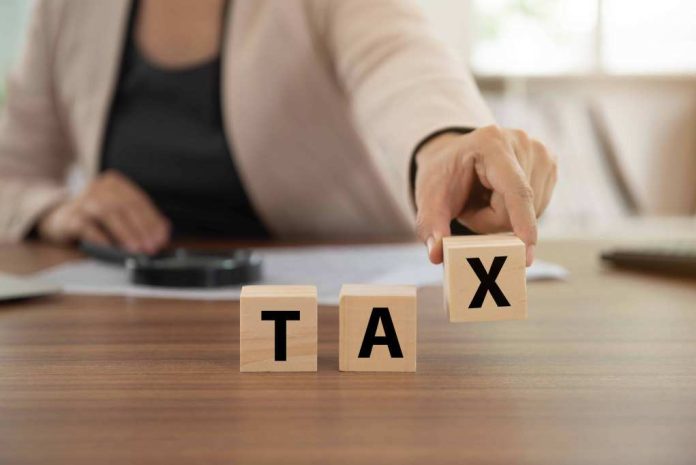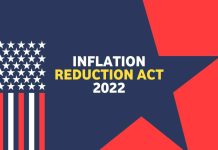
You may remember seeing a deadline notice from the Internal Revenue Service (IRS). This deadline referred to April 18th, 2022 (or April 19th, depending on the state) which was the last day that taxpayers could file their 2018 income taxes. It’s important to file these taxes because, from the 2018 filing year alone, nearly 1.5 million taxpayers were due roughly $1.5 billion in tax refunds! To put some perspective on this, the median payment was $813.
It’s important to note that according to the law, taxpayers who didn’t file their income taxes have three years to file a return to claim their refund. Typically, this three-year window starts on the due date of the return. So for a majority of taxpayers, it was April 18th, 2022 (or April 19th, 2022 for some states). However, for taxpayers that filed an extension on their 2018 taxes, the deadline was October 17th, 2022. Since this deadline has passed, it’s important to know what to do when you miss an IRS deadline.
What to Do If You Miss an IRS Deadline
The course of action that you will need to take if you miss an IRS deadline will vary depending on the deadline you miss. For example, in regards to the deadline we were talking about above for 2018 taxes, if you weren’t able to file within the specified three-year window, the United States treasury will gain ownership of the money. You essentially are out of luck. However, regardless of the deadline you miss, you want to reach out to a tax professional. They will be the ones to provide you with details on the true course of action that you need to take for your situation.
IRS Tax Filing Support
If you need help filing your taxes, the IRS provides programs that can help! Some opportunities include:
- Volunteer Income Tax Assistance (VITA)
- Tax Counseling for the Elderly (TCE)
Volunteer Income Tax Assistance (VITA)
This tax program has been around for over 50 years! It provides free support for taxes. However, this assistance is only available to people who qualify. This includes those that:
- Make at most $60,000 per year (typically)
- Deal with a disability
- Speak very little English
While this support opportunity is managed by the IRS, the actual program sites are operated by partners of the IRS. The sites have IRS-certified volunteers as staff who can provide support on tax counseling. Often, the staff members have a past with organizations that are non-profit that receive IRS grants.
Tax Counseling for the Elderly (TCE)
This support opportunity is only available to those that qualify. Which, you guessed it, are those that are elderly! This means people that are at least 60 years old. The benefit of this tax opportunity is that seniors can get specialized tax support on senior-related topics like retirement planning, pension, etc.
Just like with VITA, this support opportunity is managed by the IRS, the actual program sites are operated by partners of the IRS. The sites have IRS-certified volunteers as staff who can provide support on tax counseling. Often, the staff members have a past with organizations that are non-profit that receive IRS grants.
IRS Tax Debt Support
There are countless reasons why a person may avoid filing their taxes. One reason, in particular, could be because they have tax debt that they are dealing with. There’s roughly $527 billion in outstanding tax debt in America. Luckily, the IRS also offers support with this! There is the Fresh Start Program. The Fresh Start Program is an umbrella term that covers different debt support options from the IRS. This program was launched in 2011 and has helped countless people in a variety of different situations. Some support options that are available through this program include:
- Currently Non-Collectible (CNC)
- Installment Agreement (IA)
- Offer in Compromise (OIC)
- Penalty Abatement
Currently Non-Collectible (CNC)
This tax support opportunity is beneficial because it stops tax debt collection on your file. So, people that owe a ton of money to the IRS but can’t manage to repay the IRS, can see some real support. To qualify for this program, the IRS and State must recognize the taxpayer. They will recognize the taxpayer if their gross income every month is no more than their allowable expenses (which is based on the national standard). On top of that, taxpayers will need to provide financial records that show the inability to handle repayment without dealing with financial hardship.
Installment Agreement (IA)
There are times when people will owe taxes but they won’t have the ability to repay the amount they owe upfront. That is how IA may be a great opportunity. This support option allows people to repay what they owe in installments. Not everyone can qualify for this opportunity. Instead, only those that:
- Are up-to-date with their tax returns
- Show proof that they can’t repay the debt in full
- Show proof that they cannot borrow the funds from a lender
Offer in Compromise (OIC)
Taxpayers with delinquent taxes can benefit from this opportunity. That’s because it can help them settle these taxes for less than the amount that they actually owe! Since this program can be very beneficial, the IRS accepts under just 50% of its applicants annually. However, this can be a complicated application to deal with, so it’s advised to have a tax professional help you with your application.
Penalty Abatement
Countless people deal with IRS penalty fees. These penalties can rack up quickly and make tax debt harder to deal with. That is why penalty abatement may be a great support opportunity. When filling out your application, you will especially want help from a tax professional. That’s because the application contains tough to understand information like IRS codes, languages, and more. Through this program, it’s possible to get some of the penalties reduced or even fully removed from your tax debt balance!
Bottom Line
Missing an IRS deadline can feel like the end of the world. However, the impact of missing a deadline depends on the actual deadline missed. In terms of the October 17th deadline for filing 2018 taxes, any person who did not file within the three-year window will not be able to claim any money they may be due. That’s because the funds are now the property of the United States Treasury.
The best course of action to do if you miss a deadline will vary depending on your situation. That is why it’s important to get advice from a tax professional. They can provide the best support for your current situation. However, some tax filing support opportunities include:
- Volunteer Income Tax Assistance (VITA)
- Tax Counseling for the Elderly (TCE)
There may be more support for your tax situation than you realize. You just need to know where to look!




























